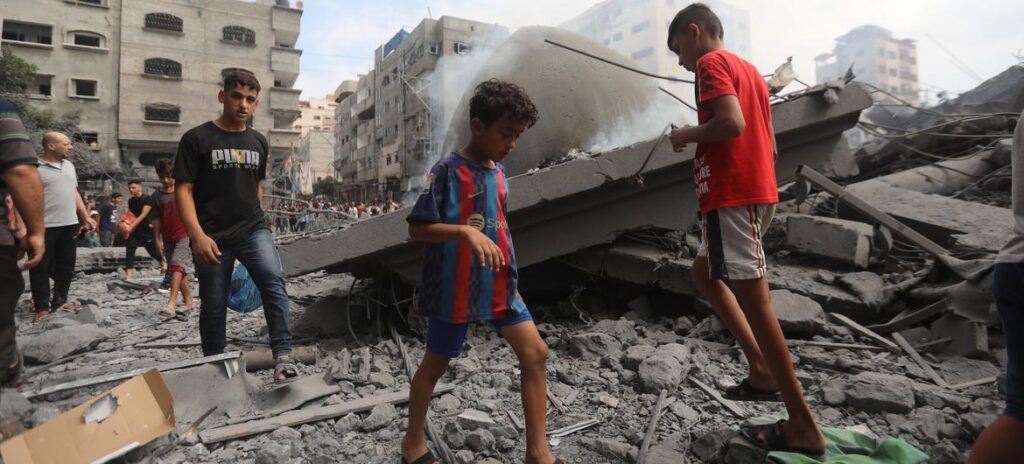UN Chief Labels Gaza Famine as ‘Failure of Humanity’
The Secretary-General of the United Nations, Antonio Guterres, has condemned the dire situation in Gaza City as a “failure of humanity.” Guterres characterized the ongoing humanitarian crisis as a “man-made disaster,” highlighting the recent assessment from a UN-supported organization that has escalated parts of Gaza to Phase 5 food insecurity—indicating severe famine.
According to the Integrated Food Security Phase Classification (IPC), over 500,000 individuals in Gaza are grappling with catastrophic circumstances marked by starvation and extreme deprivation. The IPC report indicates an urgent need for immediate aid to prevent further loss of life, warning that without intervention, the famine conditions will deteriorate.
As the situation unfolds, conflicting narratives persist. Israel has rebuffed allegations of famine, labeling the IPC’s findings as an “outright lie.” This stance is at odds with testimonies from over 100 humanitarian organizations, local witnesses, various UN entities, and statements from several Israeli allies, including the UK. The IPC asserts that Israel’s ongoing restrictions on aid are exacerbating food scarcity issues, a claim that Israel also disputes.
Projected Impacts and Human Suffering
Notably, the IPC forecasts that by late September, famine conditions may extend into additional areas of Gaza, such as Deir al-Balah and Khan Younis. Nearly 641,000 people are expected to endure catastrophic conditions, while approximately 1.14 million may experience emergency conditions, placing 58% of the population under severe stress.
The report also alarming predicts that until June 2026, around 132,000 children under the age of five are at risk of malnutrition-related complications. The Hamas-run health ministry in Gaza has reported 271 malnutrition-related deaths so far, including at least 112 children.
| Category | Estimated Population |
|---|---|
| Catastrophic Conditions (Phase 5) | 641,000 |
| Emergency Conditions (Phase 4) | 1.14 million |
| At Risk of Malnutrition (under 5) | 132,000 |
Local Voices and International Reactions
Local residents’ testimonies echo the grim realities of the famine. Reem Tawfiq Khader, a mother of five, described the lack of protein in their diet for months, lamenting that her youngest child no longer recognizes basic foods. Another individual, Rida Hijjeh, shared her heartbreak over her daughter’s drastic weight loss due to the lack of food resources.
In response, Tom Fletcher, the UN aid chief, emphasized the preventable nature of the famine, blaming systematic hindrances imposed by Israeli authorities on aid deliveries. Guterres reaffirmed that international law holds Israel accountable for ensuring the provision of food and medical supplies to all populations within Gaza.
Phillipe Lazzarini, head of the UN agency for Palestinian refugees, attributed the crisis to intentional actions by the Israeli government, while UK Foreign Secretary David Lammy labeled it a “moral outrage.” He attributed the ongoing distress to the Israeli government’s failure to facilitate adequate aid into Gaza.
Israel’s Response and the International Community’s Reaction
Israeli Prime Minister Benjamin Netanyahu contended that Israel’s strategies aim to prevent famine, rather than contribute to it. Following international criticism, he claimed that over two million tons of aid had been dispatched to Gaza since the onset of conflict.
Despite these claims, many aid analysts argue that the measures taken, including recent airdrops, fail to address the billowing crisis effectively, insisting on the need for regular aid channels. Reports confirm that the ongoing military conflict and widespread displacement have further complicated aid efforts in Gaza, leading to an unprecedented humanitarian disaster.


